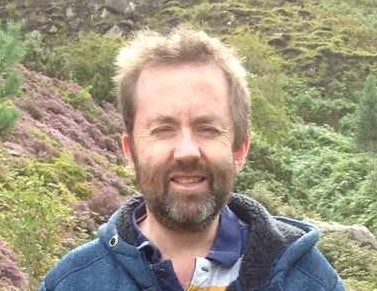Research Student Spotlight: Tim Howson

Our monthly spotlight on the work and lives of the next generation of water@leeds researchers.
This month: Tim Howson
PhD title: The hydrology, hydrochemistry and aquatic carbon fluxes associated with forest-to-bog restoration.
School of Geography
Supervisors: Professor Joseph Holden and Professor Pippa Chapman, School of Geography.
Latest paper: A comparison of porewater chemistry between intact, afforested and restored raised and blanket bogs. Science of the Total Environment, Elsevier. Howson, T., Chapman, P.J., Shahb, N., Anderson, R., Holden, J., (2021) DOI.
Tell us a bit about yourself
I grew up in a Northern English town in the Pennines. I first studied at University in the 1990s but looked to switch careers later in life by taking an MSc in Conservation and Land Management at Bangor University, North Wales. Following this, I took a casual job in peatland restoration at Moors for the Future. I first met my supervisors at Moors for the Future, and my PhD came about when they needed a replacement student for a project on afforested peatland restoration. I am grateful for the opportunity as it has allowed me to pursue an interest in landscapes I feel connected with.
Why did you choose University of Leeds?
I wanted to learn more about the science behind peatlands, and the PhD sounded interesting since it could help influence future policy decisions into what is known as forest-to-bog restoration. I was also keen to work with the Forestry Commission's research division for Scotland who co-sponsor the project. It has certainly broadened my knowledge of peatlands and the issues associated with land management changes and how this impacts the hydrology, water quality, and the global climate.
What is your research about?
The project gathers more information to support forest-to-bog restoration policy, focusing on the water regulatory ecosystem services associated with peatlands. We compared differences in soil and stream water quality, streamflow, water-table dynamics, and the peat's hydraulic and chemical properties between intact, afforested, and restored bogs in Scotland.
What did you wish you knew before starting a PhD?
I wish I had known before starting how best to narrow down your research and the importance of keeping your research questions simple. After my short Masters project, the amount of data associated with a PhD was also challenging.
